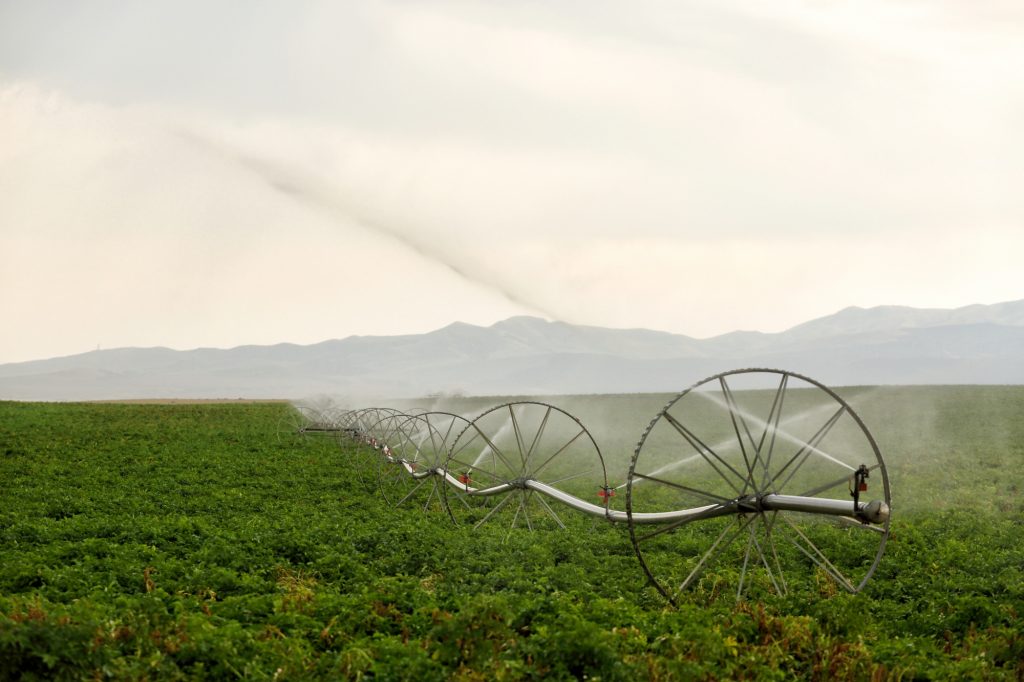
Reducing water usage: protecting global supply while cutting costs
Water is essential to life – not just for drinking, but for growing crops, too. Farming accounts for nearly 70% of all water usage. In developing countries that percentage can even rise to 95%.[1] Today, more than 2 billion people live in countries that are experiencing high water stress.[2] As global population grows, and living standards increase, this will become an even bigger challenge.
The food industry consumes a vast amount of clean water per ton of produce. Throughout the food value chain, water is often used inefficiently. It would appear to be self-evident that we need to reevaluate working procedures to protect this essential resource. There is, however, another important reason to reduce water usage: cost.
Today, huge quantities of drinking water are used for cleaning fruit and vegetables. Due to the limited availability and cost of clean water as well as wastewater discharge costs, more and more food processing plants are reusing water. This has a number of benefits. Academic research shows that implementing water recycling and reuse technologies can bring the food industry numerous benefits[3]:
• water savings
• reduced dependency on raw/fresh water supply
• reduced wastewater discharge costs.
Let’s take a closer look at each of these benefits.
Water savings
In 2017, global fresh fruit production amounted to some 33.63 million metric tons[4]. Vegetables amounted to 1094 million metric tons.[5] Research indicates that on average, some 5 litres of wastewater per kilogram of produce is generated in post-harvest processing of fruit, leafy greens, and root vegetables.[6] Clearly, the volume of clean water it would take to wash all this produce is vast. If we also take into account the fact that not enough fruit and vegetables are being produced to satisfy global demand, which is set to increase significantly, there can be little doubt that recycling washing water is the way forward.
Reduced dependency on raw/fresh water supply
Replacing all process water every time a new batch of produce requires washing is not only costly and inefficient – it’s also a huge waste of drinking water. Reused water only needs to be filtered once and is continuously kept clean with a minimal addition of fresh drinking water. Each time a fresh supply of water is used, thousands of litres are being removed from the local supply of potable water.
Reduced wastewater discharge costs.
Wastewater is expensive to treat or discharge: (in)organic waste and suspended solids need to be separated and transported from the washing facility and a fee has to be paid to the authorities. Reuse, on the other hand, can reduce – or even eliminate – wash water discharge to the environment – which supports CSR & Compliance, too.
Other benefits: save space and focus on your core business
In addition to the points above, reuse of washing water has a number of
practical benefits. The required setup is more compact than a traditional
washing installation, which saves costly square metres in processing
facilities. Furthermore, the automated system means there is one less thing to
worry about, which allows you to focus on the washing and packaging processes.
VAM WaterTech’s expertise, technology and ongoing
support enable a very hygienic approach to water usage and the washing process,
allowing you to stay focused on your core business. Our solutions help you reduce costs, increase
efficiency, and ensure the global water supply is not unnecessarily used. Our multi-stage
purification removes bacteria and pesticides and results in a 95% saving on
process water as well as cleaner washing lines and production environments. Get in touch with VAM to find out more or discuss
your own requirements!
[4] https://www.statista.com/statistics/262266/global-production-of-fresh-fruit/
[6] https://www.nrcresearchpress.com/doi/10.1139/cjce-2017-0214#.XTgADC2B1ZI
Hans Blaak
phone: +31 (0) 113 – 65 58 80
email: hb@vam-watertech.com
or use our contact form.
